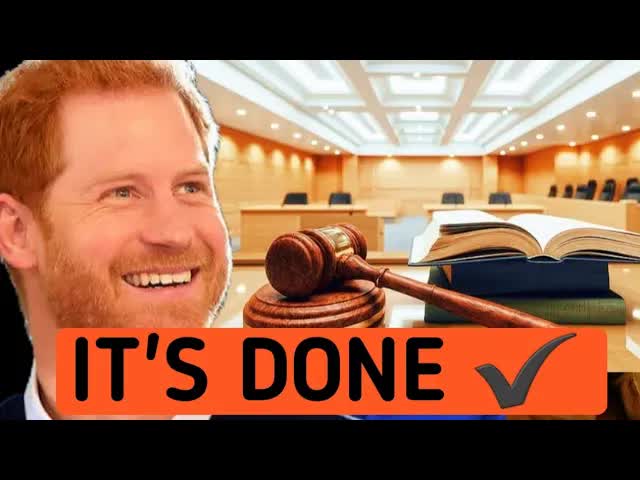In a surprising turn of events, the Heritage Foundation, a conservative think tank, has found itself in hot water over a lawsuit concerning Prince Harry’s visa status.
Their claims have sparked considerable debate, alleging everything from drug use to insinuating that the Biden administration played a role in the matter.
However, a key detail has been overlooked: Prince Harry’s visa was approved during Donald Trump’s presidency, not Joe Biden’s.
This oversight raises questions about the motivations behind the Heritage Foundation’s actions.
The Department of Homeland Security (DHS) has been placed in a rather awkward position as they defended Prince Harry’s right to privacy.
Interestingly enough, this right is shared by all individuals, including former President Trump.
The case has ignited discussions surrounding Harry’s visa records, which are classified as law enforcement documents because they involve Immigration and Customs Enforcement (ICE).
What started as a simple legal dispute has morphed into what many are calling a coordinated campaign involving the British media, the Windsor family, and the Heritage Foundation.
Their goal?
To find a way to have Prince Harry deported from the United States.
For 18 long months, the Heritage Foundation has relentlessly pursued this agenda, filing multiple lawsuits and Freedom of Information Act requests aimed at uncovering Harry’s immigration records.
Their intent was clear: to prove that Harry had lied on his visa application.
Yet, despite their fervent efforts, they failed to present any substantial evidence to support their claims.
The timing of this harassment coincided with the release of Prince Harry’s memoir, “Spare,” which details his journey of stepping back from royal duties in search of freedom and privacy.
The relentless pursuit of his private records has raised eyebrows and concerns about the ethics behind such actions.
This week, a significant development occurred—the judge presiding over the case decided to terminate the lawsuit.
After 18 months of targeted harassment, Prince Harry can finally breathe a sigh of relief.
The incessant accusations and attempts to pry into his private life have come to an end, at least for now.
But let’s be clear: the Heritage Foundation’s wild claims and defamatory statements will not simply fade away.
What does this mean for Prince Harry?
It signifies a legal victory, affirming his right to privacy amidst a storm of unfounded allegations.
The termination of the lawsuit serves as a testament to his resilience against a concerted effort to undermine his reputation.
Despite the barrage of accusations, Harry has stood firm, refusing to be intimidated.
The case has also sparked essential conversations about privacy rights.
The DHS had to argue that Prince Harry, like everyone else, is entitled to privacy, a right that should be upheld regardless of one’s public status.
This highlights a critical point: every individual deserves a certain level of privacy, a fundamental human right that is often overlooked in the public eye.
The Heritage Foundation’s actions also raise intriguing questions about the balance between public interest and personal privacy.
Can a public figure’s right to privacy be compromised for the sake of curiosity?
This case has brought these debates to the forefront, reminding us that even those in the limelight are entitled to their personal space.
As the dust settles on this saga, it becomes clear that the lawsuit was more than just a legal challenge; it was a reflection of the lengths some will go to compromise another’s rights.
The collaboration between various entities—British media, the Windsors, and the Heritage Foundation—illustrates a troubling trend in how public figures can be targeted.
Ultimately, this episode serves as a cautionary tale about the intersection of politics, media, and personal lives.
The Heritage Foundation’s unfounded claims and their failure to provide any evidence only underscore the need for ethical considerations in such pursuits.
As we move forward, it’s crucial to remember that the right to privacy is not a privilege reserved for the elite; it is a fundamental right that belongs to everyone, including Prince Harry.
In the end, Prince Harry’s experience highlights the importance of standing up for one’s rights, even when faced with overwhelming opposition.
His story is a reminder that resilience can triumph over adversity, and that the fight for privacy remains as relevant today as ever.
